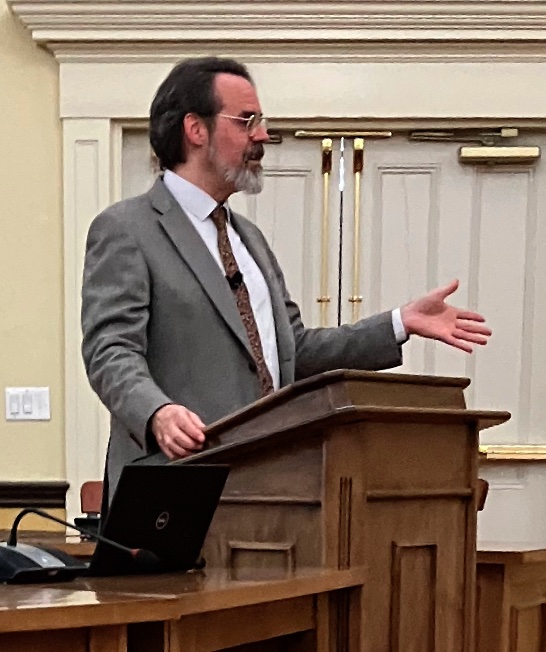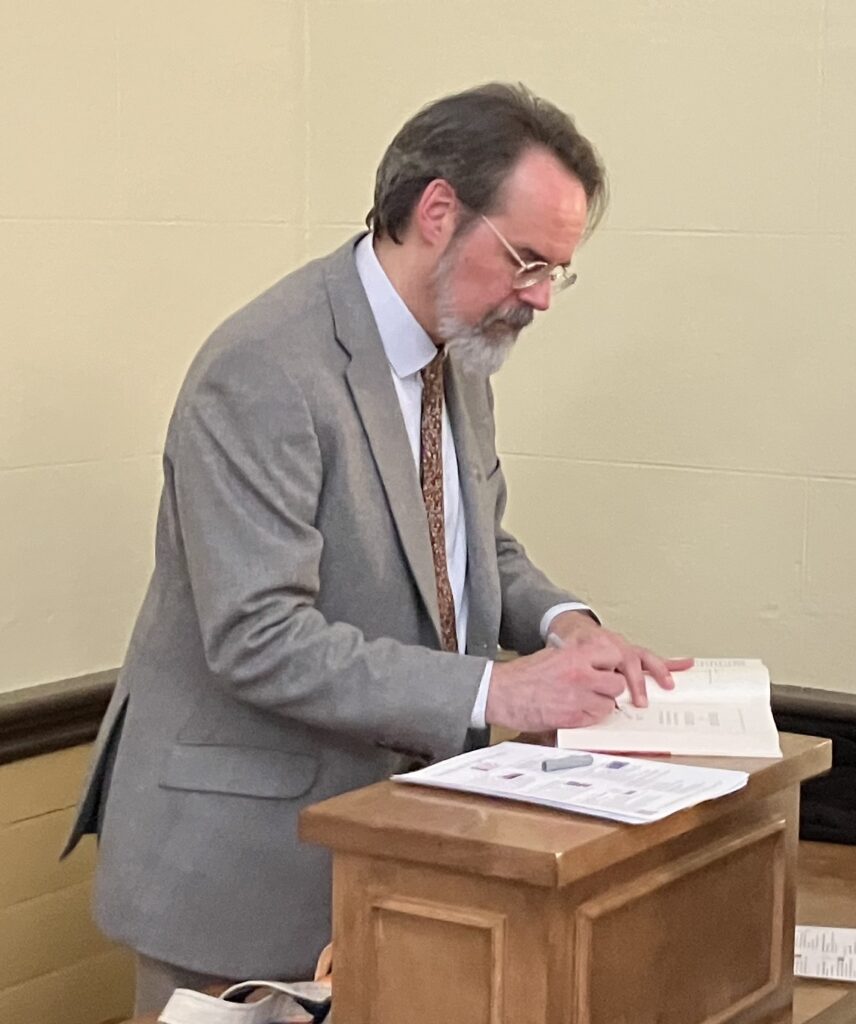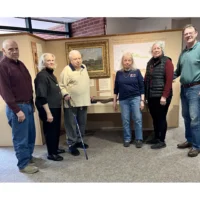The outcome of any military engagement is difficult to predict, and accurate information about the opposition’s manpower, armaments, and troop movements often plays a critical role in achieving victory. The impending battle between the Colonists and the occupying British army in 1775 would be an asymmetric conflict between two very different forces. The British soldiers were well-trained men under the leadership of General Thomas Gage, but his requests for additional troops to counter threats from the growing number of New Englanders who were no longer loyal to the Crown were repeatedly refused. The Colonists were neither well-organized nor well-armed, but had the advantage of fighting on home soil for a just cause. The Patriots were determined to defend their new independence by any means, including the use of spies.
Speaking to a capacity audience in the Francis Falkner Hearing Room on March 31, author and historian John L. Bell related a fascinating story of the spies used by the commanders on both sides of the conflict. While many informants chose to provide information due to loyalty to their cause, others were primarily driven by money, property, revenge, or self-promotion. It was often difficult to determine the veracity of the information provided, since the true identity and motives of the undercover messenger were always in question.

Consider the story told by Mr. Bell about the notorious Dr. Benjamin Church Jr. He was born in 1734, the son of a well-respected Rhode Island family. He graduated from Harvard College in 1754, after which he traveled to London to study medicine. Upon his return to the Colonies, Church expressed his strong support for the Whig cause, treated the wounded in the 1770 Boston Massacre, and spoke at annual commemorations of that tragedy. He was elected a delegate to the Massachusetts Provincial Congress and, in 1774, became a member of the examining board for surgeons for the army. He later served as the Chief Physician of the new Continental Army, effectively making him the Country’s first Surgeon General. But there were rumors that he had been seen in the company of the British General Gage, although he claimed that he had been taken prisoner and then released. In the summer of 1775, it was discovered that he had sent a coded message to a British officer by way of a former mistress. When the communication was intercepted and decoded, Church claimed that it was his intent to send an exaggerated estimate of the Continental Army’s strength in order to forestall an attack. While he was briefly imprisoned by the Colonists as a result of this discovery, his true motive for sending the encoded message was unresolved until the 20th century when scholars discovered additional treasonous letters written by Church. Historians are now convinced that he was, indeed, a spy for the Crown.
John Bell spoke at length to a thoroughly captivated audience about the exploits of Dr. Church, as well as others, both male and female, who functioned as undercover agents during the Revolutionary War for the Colonies, Britain, and France.

John L. Bell is the author of the historical text “The Road to Concord”, and has contributed to several other works including “Children in Colonial America” by James Marten; “Reporting the Revolutionary War” by Todd Andrlik; the “Journal of the American Revolution”, the “Dublin Seminar for New England Folklife”, and “Colonial Comics: New England”, edited by Jason Rodriguez. Mr. Bell also maintains the Boston 1775 Blog. His talk, “The Spies of 1775”, was presented as part of the Acton 250 lecture series.
Dr. Parenti is a member of the Town of Acton Water Resource Committee and the Acton Water District Finance Committee.


